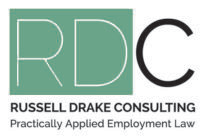With most people now carrying a cell phone with them, the question of the legitimacy of recording workplace conversations, or even taking a video of other staff, is more frequently being asked.
It is very common within the modern workplace, that an employee being requested to attend a disciplinary meeting may request that they record the meeting. This request may be made by the employee, or by their representative, or may even be at the request of the employer to ensure that an accurate record of the meeting is obtained. While mutual consent is the preferred position, where one party objects to this, it does not prevent the other party from proceeding to record the conversation. The critical element here being that the objecting party has been notified that the other party will be making a recording.
In situations where a recording is to be made, the other party has a legal right to request that they are provided with a copy of the recording at the end of the meeting – whether they initially agreed to the recording or not. This recording then takes the form of ‘legitimate evidence’ if needed by either party in later proceedings.
It could however be considered a breach of Good Faith for one party to make a recording of another party within a meeting, without first advising that this is occurring. The principles of Good Faith reinforce that neither party (employer or employee) can do anything that could ‘mislead or deceive, or have the potential to mislead or deceive’ the other party. Engaging in a conversation while secretly recording this may be deemed to be an ‘action of deception’ and could in some circumstances result in disciplinary action against the offending employee in its own right. In extreme cases it may also be considered to be a breach of the Privacy Act 2020.
Principle 4 of the Act states that personal information must be collected in a way that is lawful and seen as fair and reasonable in the circumstances. What is fair depends a lot on the circumstances that exist at the time the recording is made, noting that threatening, coercive or misleading behaviour when collecting information from an individual (even via a recording) could be considered to be unfair. If a party breaks the law when making an unauthorized recording, then the information collected may be unlawful and may not then be able to be presented as evidence at a later date.
With that said, there may in fact be occasions when making a ‘covert’ recording (audio or video) may be entirely legitimate. The most common scenarios where the legitimacy of a secret recording might occur could include; when gathering evidence to support a bully and harassment complaint, a sexual harassment or discrimination event, or even where the actions of an employee may constitute a breach of the company’s health and safety requirements.
In all of the above examples, the underlying rationale to support the making of the recording would be that, ‘if the individual knew that they were being recorded, it would be unlikely that they would undertake the action and therefore the opportunity to gather evidence would be gone’.
Where information is gathered under these scenarios the evidence would generally be considered to be lawful and could therefore support any future processes to be implemented to address the behavioral concerns. In such a case however, under the principles of ‘natural justice’ the offending party is then lawfully entitled to receive a copy of all information gathered that may then be used against them – to deny them this right may in itself be a breach of procedural fairness.
If you have a situation where you believe that it may be necessary to ‘covertly’ gather information to support a future disciplinary process, or you discover that an ‘unlawful’ recording has been made, please feel free to contact us directly to ensure that your approach to addressing these situations is robust and does not create undue risk and liability for you.


Hi A employee felt he was being bullied and also falsely accused of serious misconduct that he felt he was set up at. Therefore during an investigation meeting this client decided to covert record this to use as a protection for himself. Did he break the law.
to provide any comment on this we would need additional information therefore please contact us if you would like to discuss further. our phone number is 07 8380018 to talk with a consultant.